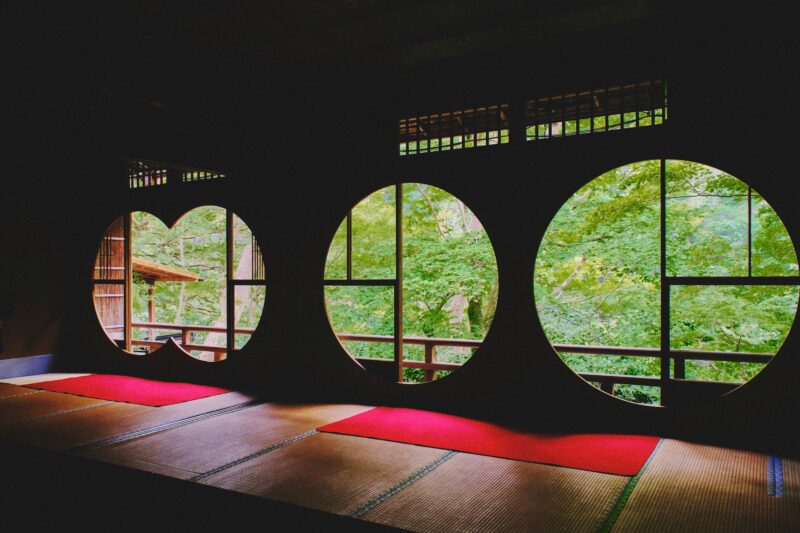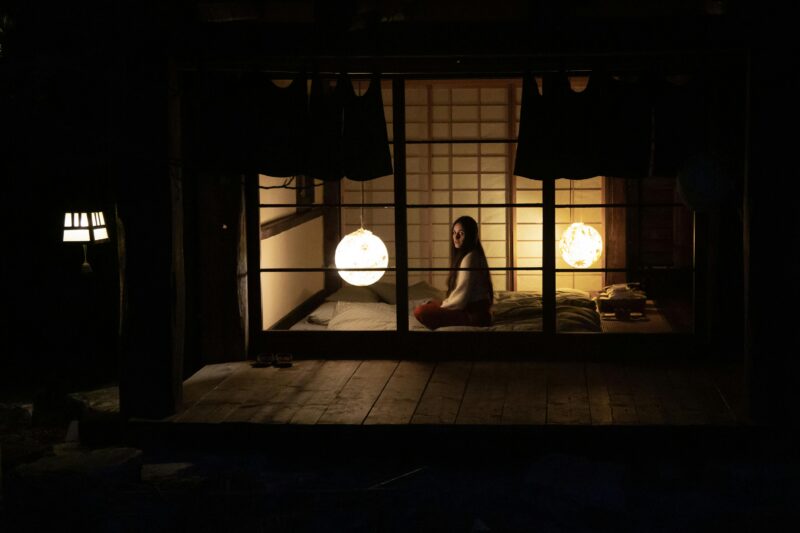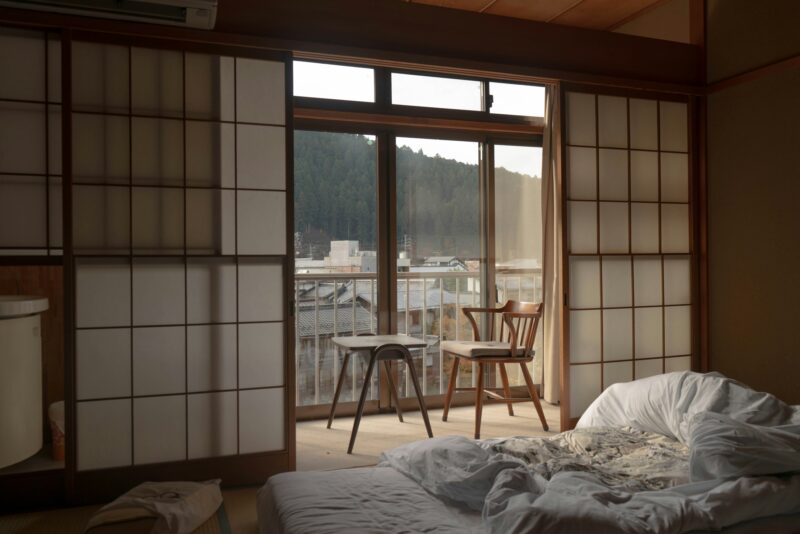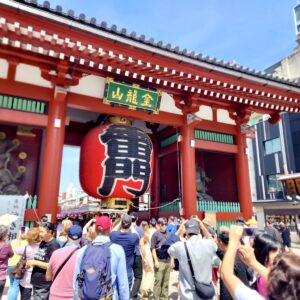Hotel Etiquette in Japan: How to Be a Gracious Guest
Table of Contents
Japan offers a wide range of accommodations, from luxury hotels to traditional ryokans (inns). While staying at any Japanese lodging, understanding the country’s unique customs and hotel etiquette can enhance your experience and show respect for your hosts. Whether it’s handling slippers, using shared facilities, or interacting with staff, this guide will help you become a gracious guest.
General Hotel Customs in Japan

1. Respect Check-In and Check-Out Times
Punctuality is highly valued in Japan. Be sure to check in and check out within the specified times to avoid inconveniencing the staff. If you anticipate arriving late, inform the hotel in advance.
2. Remove Shoes When Required
Many hotels, especially ryokans, require you to remove your shoes at the entrance or in your room. Slippers are usually provided for indoor use. Look for signs or observe what others are doing if you’re unsure.
3. Be Mindful of Noise
Walls in Japanese hotels are often thinner than those in Western accommodations. Speak softly, avoid loud television or music, and tread lightly in hallways to ensure you don’t disturb other guests.
4. Use Provided Amenities Thoughtfully
Hotels often provide amenities like yukata (casual kimono), toiletries, and tea sets. These are meant for use during your stay, so avoid taking them home unless explicitly allowed.
5. Express Gratitude
Politeness goes a long way in Japan. A simple “Arigatou gozaimasu” (ありがとうございます) when interacting with staff shows your appreciation.
Staying at a Ryokan: A Unique Experience

1. Understand Tatami Room Etiquette
In ryokans, rooms often have tatami mat flooring. Avoid stepping on tatami with shoes or even slippers; only socks or bare feet are acceptable.
2. Learn How to Wear a Yukata
Yukata are provided for guests to wear inside the ryokan or even to dinner. Wrap the left side over the right (the opposite is for funerals) and tie the sash around your waist.
3. Follow Onsen (Hot Spring) Rules
If your ryokan has an onsen, make sure to shower thoroughly before entering the communal bath. Towels should not touch the water, and swimwear is not allowed.
4. Enjoy Kaiseki Meals Properly
Kaiseki, a multi-course Japanese meal, is often served in ryokans. Wait for all dishes to be served before starting, and savor each course at a leisurely pace. Complimenting the meal with “Oishii desu” (おいしいです, meaning “It’s delicious”) is appreciated.
5. Prepare for Futon Bedding
Staff will often prepare your futon (Japanese bedding) while you’re at dinner. If you return to find it unmade, let the staff know, as this is part of their hospitality service.

1. Keep Shared Spaces Tidy
Whether it’s a shared bathroom, lounge, or kitchen, leave the area clean for the next guest. Wipe down surfaces and return items to their original place.
2. Be Quiet in Common Areas
Shared spaces like lounges or reading rooms are meant for quiet relaxation. Keep conversations low and avoid disruptive activities.
3. Respect Bathing Schedules
Some ryokans or small inns assign specific times for private bath use. Stick to your allotted time and exit promptly to avoid delaying others.
4. Use Luggage Storage Considerately
If luggage storage is available, ensure your belongings are neatly packed and don’t take up excessive space. Label your items if required.
5. Adhere to Curfews
Traditional inns may have curfews to maintain a tranquil environment. Be mindful of these timings and plan your outings accordingly.
Hotel Room Etiquette

1. Use Slippers Appropriately
In most hotels, slippers are provided for indoor use, and separate slippers are designated for bathrooms. Avoid wearing indoor slippers outside your room or in areas where they’re not intended.
2. Handle Tatami and Bedding Carefully
If your room has tatami mats, avoid placing heavy luggage directly on them to prevent damage. When using futons, fold them neatly in the morning unless staff handle this for you.
3. Control Air Conditioning and Heating Considerately
Energy conservation is important in Japan. Adjust the temperature settings within reasonable limits and turn off lights or appliances when leaving the room.
4. Dispose of Trash Properly
Separate trash into the categories provided by the hotel, such as burnable, recyclable, and non-burnable. Use the bins in your room or designated areas.
5. Avoid Rearranging Furniture
Furniture placement in Japanese hotel rooms is often intentional. Avoid moving items around unnecessarily, as this can disrupt the room’s design and function.
Interacting with Hotel Staff

1. Be Polite and Respectful
Japanese hospitality, or omotenashi, is renowned worldwide. Responding with kindness and respect enhances your interactions with staff.
2. Avoid Tipping
Tipping is not customary in Japan. Exceptional service is expected, and a heartfelt thank you is sufficient to show your appreciation.
3. Communicate Clearly
If you have special requests, communicate them clearly and politely. Staff will do their best to accommodate you, even if there is a language barrier.
4. Ask About House Rules
Each hotel may have specific rules, such as quiet hours or guidelines for using shared spaces. Clarify these during check-in to avoid misunderstandings.
5. Express Gratitude Upon Leaving
When checking out, thank the staff for their hospitality. Phrases like “Osewa ni narimashita” (お世話になりました, meaning “Thank you for taking care of me”) are thoughtful and appreciated.
Tips for a Memorable Stay
1. Research Accommodation Types
Japan offers diverse options, from capsule hotels to luxury ryokans. Research the type of accommodation that best suits your needs and preferences.
2. Learn Basic Japanese Phrases
Knowing simple phrases like “Konnichiwa” (こんにちは, hello) and “Arigatou” (ありがとう, thank you) can enhance your experience and show respect for the culture.
3. Understand Cultural Differences
Embrace the unique customs of Japanese hospitality, such as bowing and attentive service. These gestures reflect the country’s commitment to creating a welcoming atmosphere.
4. Pack Appropriately
Bring lightweight and comfortable clothing suitable for indoor wear, such as socks for tatami rooms. Having a compact toiletry kit can also be useful for shared facilities.
5. Embrace the Experience
Whether it’s sleeping on a futon or soaking in an onsen, immerse yourself in the cultural aspects of your stay. These experiences offer a glimpse into Japan’s traditions and lifestyle.
FAQs About Hotel Etiquette in Japan
1. Is Tipping Necessary in Japanese Hotels?
No, tipping is not customary in Japan. Exceptional service is standard, and a sincere thank you is sufficient.
2. What Should I Do If I Arrive Late?
Inform the hotel in advance if you expect to arrive late. Many establishments appreciate notice to adjust their preparations.
3. Can I Wear Shoes Inside My Room?
No, shoes should not be worn inside hotel rooms, especially those with tatami flooring. Use the provided slippers instead.
4. Are Children Welcome in All Hotels?
Most hotels accommodate children, but it’s best to confirm in advance, especially for ryokans or boutique accommodations with specific rules.
5. How Do I Handle Lost Items?
Contact the hotel as soon as you realize something is missing. Staff are often diligent about locating and returning lost belongings.
Looking to experience Japan’s hospitality firsthand? Contact Firefly Japan for personalized travel planning and recommendations on the best accommodations.
Final Thoughts
Understanding hotel etiquette in Japan enhances your stay and allows you to fully appreciate the country’s renowned hospitality. Whether you’re enjoying the luxurious simplicity of a ryokan or the convenience of a city hotel, following these guidelines will ensure a memorable and respectful experience.
By embracing these customs, you’ll not only enrich your travel experience but also leave a positive impression as a guest in Japan.
Looking for a tour agency to help with your planning?
Contact Firefly Japan to book a private luxury tour in Tokyo & Kanto


